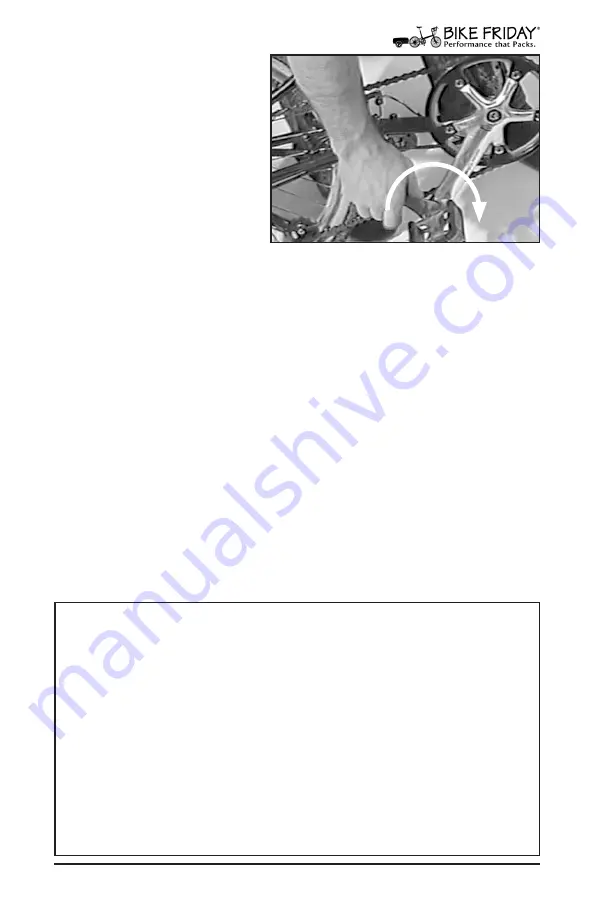
20
www.bikefriday.com
800-777-0258
•
+1-541-687-0487
33. Thread In Pedals
Using your fingers, start
the pedal threads into the
proper crank arm. Be careful
not to cross-thread the ped-
als! Once the pedal threads
are started, you may use a
wrench to finish threading
them in, and then tighten
securely.
Tip:
Remember to tighten
your pedals by turning both toward the front of the bike.
Fig. 33 Tighten pedals (tighten in
opposite direction for left pedal).
Assembly: Install Pedals
34. Double-Check Your Bike!
At this point your bike should be ready to ride. However, before
you ride away, be sure to double-check your assembly. Are the
handlebars tight? How about the stem and pedals? Are the quick
releases all secure?
Although we usually inflate the tires at the factory, it is sometimes
necessary to deflate larger tires to fit the bike in the case. So, check
your tire pressure for proper inflation. Under-inflated tires not only
wear faster and are more prone to flats, but they also add drag.
Be sure to carry at least the 5/6mm S-wrench with you for quick
road-side adjustments. If you have the folding tool, take it with
you. You will probably want to stop and adjust saddle height and
perhaps a few other items during your first ride or two.
•
Tip
Be sure to keep a light film of grease on any intersecting bike
parts. This will help to prevent corrosion, facilitate disassembly,
and eliminate annoying noises. Areas include seat posts, saddle
rails, handlebars, stems, seat masts and frame fork tips. Doing this
a couple of times per year during routine maintenance should be
enough. Wipe off any excess or visible grease.
Also be sure to lightly grease all bolt threads on your bicycle as
you repair or upgrade components. Lubricating your bolts will
allow you to adequately tighten the fasteners and keep them
from seizing in the future.
















































